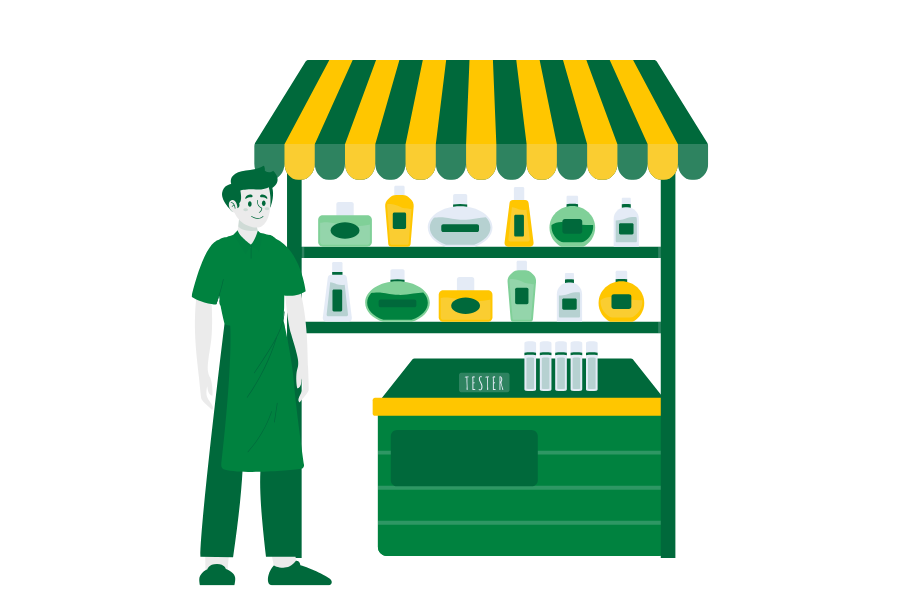Why Pop-Up Shops Are a Smart Move for US Entrepreneurs
Launching a business doesn’t always require a permanent storefront. For US entrepreneurs, pop-up shops provide a unique opportunity to sell products, engage with customers, and test markets while minimizing costs and risk. These temporary retail spaces allow small business owners to build brand awareness, validate demand, and explore new locations without long-term commitments.
What Is a Pop-Up Shop?
A pop-up shop is a temporary retail location open for a limited time, from a few days to several months. They can appear in high-traffic areas, shopping centers, events, or unconventional spaces like shipping containers. Pop-ups are versatile tools for product launches, seasonal promotions, market testing, or brand-building campaigns.
Benefits of Pop-Up Shops for US Entrepreneurs
1. Low Startup Costs and Reduced Risk
Short-term leases and lower overhead make pop-ups an affordable option for entrepreneurs testing products or entering new markets.
2. Market Testing and Validation
Pop-ups allow direct engagement with customers, enabling real-time feedback on products, pricing, and branding strategies.
3. Increased Brand Awareness
The temporary nature creates urgency and exclusivity, attracting customers and increasing brand visibility.
4. Flexibility and Quick Market Entry
Pop-ups can be set up quickly in prime locations, allowing businesses to capitalize on seasonal trends, events, or high-traffic areas.
5. Expanded Sales Channels
They complement e-commerce by providing a physical presence where customers can touch, try, and purchase products, boosting overall revenue.
6. Networking and Collaboration Opportunities
Pop-ups attract local media, influencers, and business partners, offering opportunities for partnerships and marketing growth.
Permits and Licenses Needed for a Pop-Up Shop in the US
To operate a pop-up shop legally, US entrepreneurs typically need:
-
Temporary Business License: Required by most cities or counties for short-term retail operations.
-
Sales Tax Permit: Needed to collect and remit sales tax on products sold.
-
Health Permit: Required if selling food, beverages, or consumable goods.
-
Event or Venue Permit: Some locations or event spaces require additional approvals.
-
Liability Insurance: Optional but recommended to protect against accidents or damages.
Requirements vary by state and city, so check with your local small business administration (SBA) office or municipal government for specific rules.

Steps to Start a Pop-Up Shop in the US
Step 1: Define Your Goals and Budget
Decide whether your pop-up focuses on product testing, brand awareness, or seasonal sales. Allocate budget for rent, inventory, staffing, marketing, and permits.
Step 2: Select the Right Location
Choose a high-traffic area that aligns with your target audience, such as busy streets, malls, events, or community centers.
Step 3: Secure Permits and Licenses
Obtain all required permits listed above before launching your pop-up shop.
Step 4: Design an Engaging Space
Create a visually appealing, branded environment that highlights your products and encourages interaction.
Step 5: Promote Your Pop-Up Shop
Use social media, email campaigns, local advertising, and influencers to generate buzz and attract visitors.
Step 6: Manage Operations Efficiently
Track sales, inventory, and customer interactions using POS systems. Provide excellent service to enhance the shopping experience.
Step 7: Evaluate and Learn
Analyze sales data and customer feedback to improve future pop-ups or inform permanent retail decisions.
Summary
Pop-up shops are an effective strategy for US entrepreneurs looking to test products, expand brand visibility, and increase sales with minimal risk. By obtaining the necessary permits, leveraging temporary retail spaces, and engaging directly with customers, small business owners can validate market demand, gather insights, and grow their business efficiently. Pop-up shops provide a flexible, cost-effective, and high-impact approach to entering the retail landscape without long-term commitments.
Modern Accounting That Finally Gets Your Business
Running a small business means wearing too many hats. Your accounting shouldn’t add to that burden. Yet traditional bookkeeping services keep asking the same questions month after month.
Counto delivers outsourced accounting that gets smarter over time. Our AI platform learns your unique business patterns and automatically handles daily transactions, while expert accountants ensure everything’s accurate. With direct WhatsApp access to your Customer Success Manager, you get enterprise-level financial management without the enterprise price tag.
Experience accounting that works as hard as you do. Our small business clients cut bookkeeping time by hours and never miss a tax deadline. Ready for accounting that understands your business? To get started, speak to us directly on our chatbot, email [email protected], or use our contact form.
Here are some articles you might find helpful
South Carolina LLC filing guide
Pennsylvania LLC formation steps







